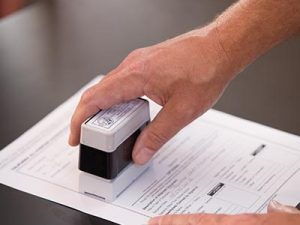 In the United States, citizens have to produce various documents for various purposes, such as identification and when applying for various services such as school and government support. Others have to provide various documents with the sole aim of proving their citizenship before they can be allowed to access Medicare and Medicaid. However, most of these documents are confusing, and some of the terms used are not common to all. This article will specifically focus on notarization and certification of various documents, while at the same time, giving deeper details so that people can understand with ease.
In the United States, citizens have to produce various documents for various purposes, such as identification and when applying for various services such as school and government support. Others have to provide various documents with the sole aim of proving their citizenship before they can be allowed to access Medicare and Medicaid. However, most of these documents are confusing, and some of the terms used are not common to all. This article will specifically focus on notarization and certification of various documents, while at the same time, giving deeper details so that people can understand with ease.
Notarized and Certified Document
A notarized document is a document whose signature and the identity of the signing party has been witnessed and verified by a notary. For example, an individual signing a particular document to prove the ownership of a particular property must be witnessed by a notary. This document or text is commonly referred to as a notarized document. For it to qualify as a notarized document, it must bear the stamp and the signature of the notary as proof of notarization.
Most of the original documents that individuals have at home don’t qualify as notary documents because they do not bear the signature of the notary and they do not have the stamp. Therefore, if you want to notarize your documents, you can get a mobile notary near you which will help you in solving legal battles that are likely to arise in the future.
If you are traveling to a different country around the world, you should make your documents notarized because foreign governments require your document to be notarized. For example, you should have notarized copies when you are processing a visa, passport, and application of other legal documents that prove your identity.
On the other hand, certified documents are only requested from the custodian on important occasions. Some of the commonly certified documents that you might have include death certificates, divorce decrees, marriage certificate, and birth certificate among others. There is a misconception that individuals hold original documents. This is not true as most of the documents that you hold are certified a copy of the original document.
Legality of Notarized Document
A considerable number of people have a misconception that a notarized document is legally binding. This not true. A notarization is just an act of indicating that a third party was involved when the documents were being certified. Therefore, notarizing a document does not make it legal but may add some influence in case of legal proceedings. Documents that have been signed by an attorney tend to have more weight than those signed by other individuals. According to the National Notary Association, notarizing a document is not a legal provision.
Where to Get Documents Notarized
You can easily get your documents notarized in various places in the United States. However, you should make sure that any person who is notarizing your document is a certified professional and has all the necessary licenses. One of the most preferred places to get your document notarized is a bank. Banks offer notarization on a free basis. You can also notarize your document in an attorney’s office, but they will require you to pay some money.
What Documents Can You Notarize?
A considerable number of people only think that there are a few documents that one can notarize. Some think of financial documents as the only notarized documents. However, there are multiple documents that you can notarize, some of which have been highlighted below.
- Wills
- Advanced directives
- Court documents
- Power of attorney
- Executorships
- Trusts
- Memorandum of understanding
- Commercial leases
- Loan agreements
- Vendor contracts, etc.
Who Can Notarize?
As we have previously seen, a notarized document is not a legal document, which means that it does not bear any weight in case of local proceedings. This means that you don’t necessarily need lawyers or attorneys to notarize your document. Any person that has the authority and power can notarize your document. However, it is important to use professional experts so that your document can be official. Some of the persons who can notarize include:
- Professional accountant
- Justice
- Police officer
- Lawyer
- Notary public
- Religious personnel
- A banker
- An immigration official
- Teacher etc.
Use an official notary to get your documents done in the correct, professional way.
Learn more
There can be no doubt tat all document outsourcing companies are not created equal. The quality of the documents that they produce can vary greatl ...
Electronic signatures are equivalents to handwritten ones. They also help to attest that the document belongs to its author. Active use of Interne ...
It is the nature of WordPress websites to contain many posts, images, articles, documents and other various digital media. After your website has ...
Electronic document management is becoming the norm in routine and business life. Previously, it was easier for a company to meet with partners ...
Most companies tend to rely on their abilities when it comes to in-house projects. However, in cases where a company needs to make changes in its ...







